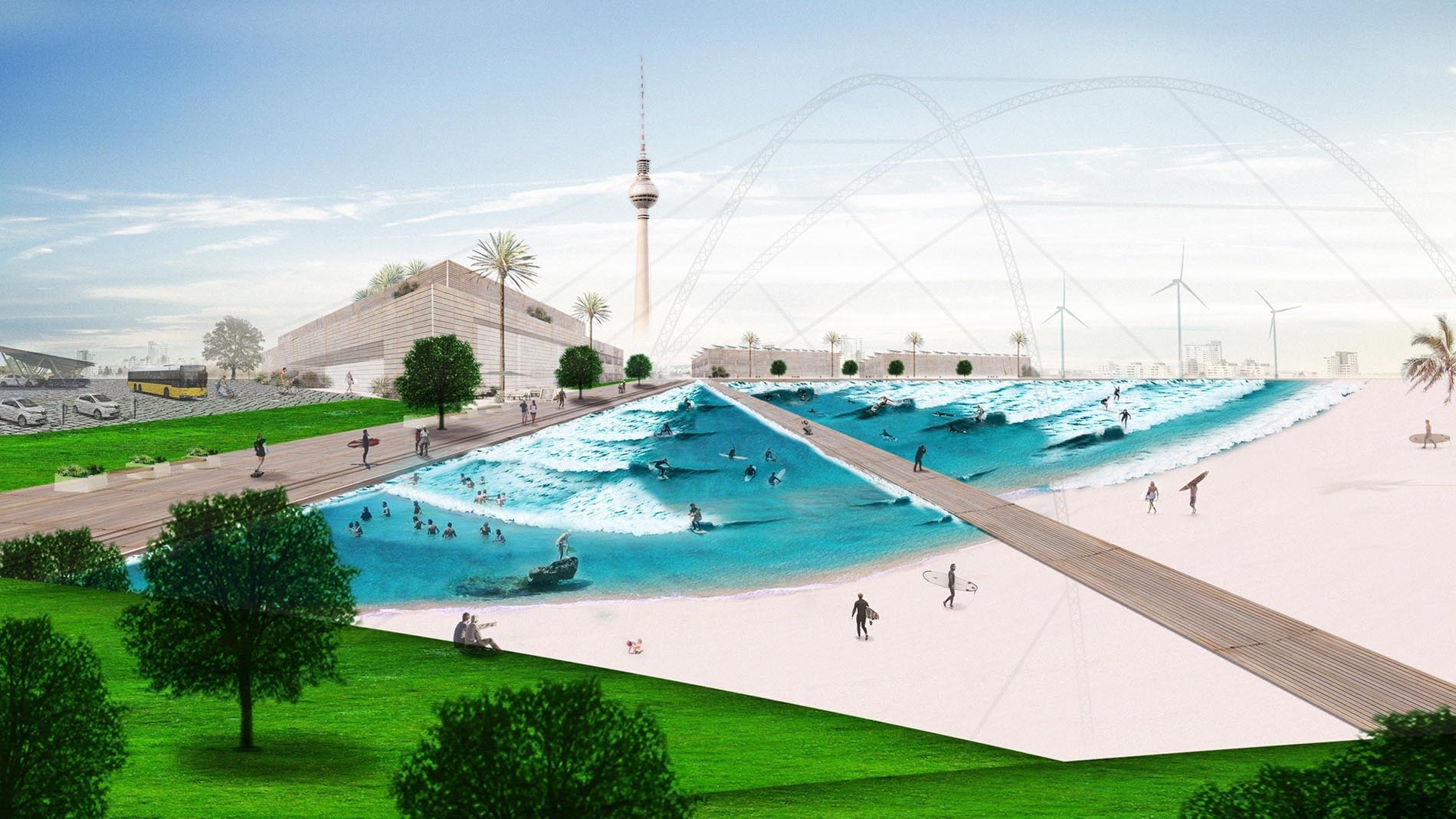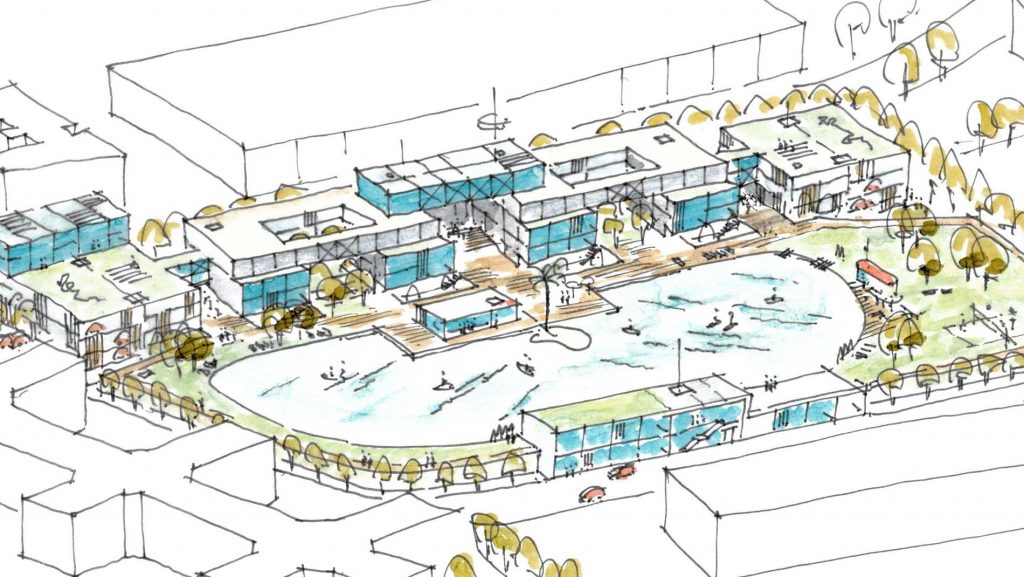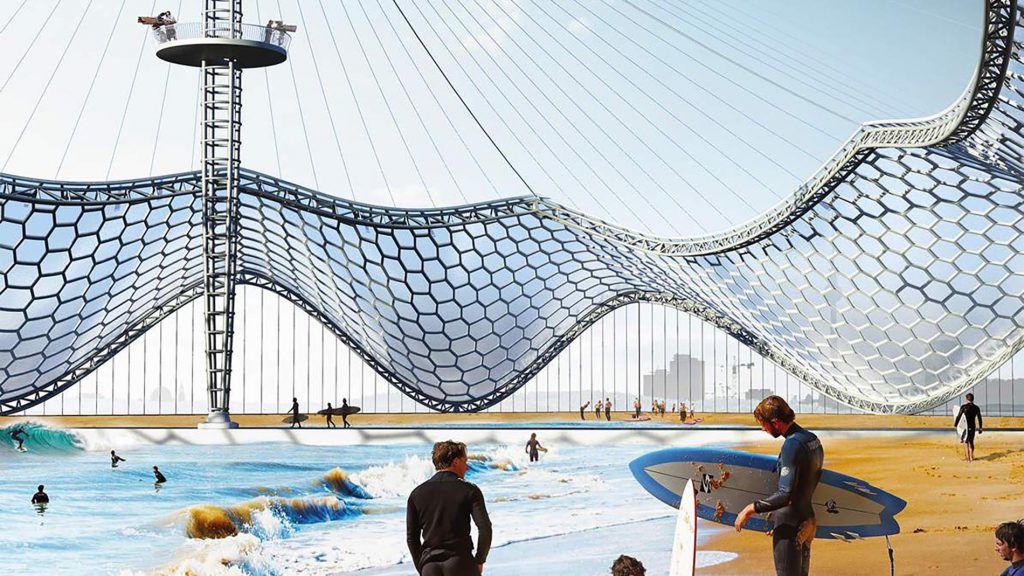From beer gardens to Wavegardens, Germany anticipates next wave

German surfers are core. Lacking the wave-rich spoils of California or nearby France they make do with whatever they can to kindle their stoke.
For salted surfers in communities dotting the North Sea, this means cold, blown-out sessions centered around the resort isle of Sylt or heading north to Denmark to find decent waves. For inland surfers in Munich and beyond it means driving eight hours to Italy to score a rare winter Mediterannean swell.
Consequently, German surfing has evolved to find creative ways to stay frothy. Munich’s Eisbach river has spawned a whole scene and industry, complete with a professional Rapid Surf League tour branching out to nearby stationary waves.
Two new wave pool projects would give German surfers a much-needed respite from hours of driving and those near-freezing freshwater sessions.

Munich
In the Hallbergmoos section of Munich, an ongoing wave pool project is deciding between Cove and PerfectSwell technology. It’s a difficult call as both Wavegarden and American Wave Machines are redlining to meet current demand, and wait times to see each project through vary a great deal.
This Munich wave pool would be incorporated into the area’s business park near the airport (which already hosts a standing wave pool). Developers Rock Capital Group is promoting the 32,000-square meter project’s appeal as meeting retail and office space demands of a growing area while enhancing local appeal with leisure space and restaurants.
Whichever wave pool tech is finalized, the group said the park would accommodate 400 surfers per day at peak times. They plan to operate 10 months out of the year seven-days-per-week.
Last March the project received approval and official support from the Hallbergmoos council with mayor Harald Reents meeting criticism by insisting that “special conditions for Hallbergmoos citizens” would be ensured as related to entry fees. More information on this project as it develops.

Berlin
The new Surf Era project renderings show Wavegarden Cove technology beneath a retractable roof surrounded by the usual wave pool amenities, cafe, surf school, lounge, alongside a futuristic energy-generating device. Most notable is the park’s retractable roof, which hints at the famed Ocean Dome in Japan.
“So that the wave pool can be used in the colder months, our surf park will have a reversible roof construction,” says Surf Era. “Surfing in the cold, rain and snow won’t be a problem at this spot.”
The surf park will require approximately 62,500 m², or about the same surface area as a dozen football fields.
Of Berlin’s 3.75million residents, the Surf Era group estimates that 25,000 are surfers. 13 million tourists visit the city each year with most passing through Brandenberg Gate and Checkpoint Charlie. After the wall came down, East Berlin’s cheap rents attracted students, musicians and artists who created a thriving bohemian scene.
One of the most forward-thinking components of this project is self-sustainability. Energy is much more expensive in Europe than in the U.S. and there are legal requirements for new developments to account for the increased consumption each project will bring.
“With our energy management system we are aiming to meet all of the park’s energy needs ourselves,” says Surf Era. “To do so, we will install vertical wind turbines and photovoltaics on the site. Also, (with future projects) in larger cities it is possible to generate energy by using heat pumps in the sewers.”
The group met their latest Crowdfunding goal and has secured grants to work on the project full time.
“Our business plan is ready and waiting to be put into action,” Surf Era says on their website. “At the moment we are looking for suitable land as well as for investors to help us with the making this happen.”
Much in the same way The Wave and Urbnsurf seek to build 10 projects in 10 years, Surf Era hopes to dot the German landscape with more surf spots.
“Our concept is freely scalable and therefore suitable for other locations in the future. Berlin is the start for Surf Era, but we also want to make this unique concept possible for other cities in Germany and around the world. Not only the size of the wave pool but also the building structure that can be adjusted depending on the location, so that surfing is possible everywhere.”
All Berlin images and videos © SURF ERA 2019 unless otherwise noted
Related Coverage
